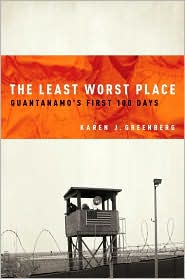This occasional series will highlight the book annotations that constitute the back pages of every issue of the NYU Journal of International Law and Politics. We are beginning with this review of Myra Williamson’s Terrorism, War and International Law: The Legality of the Use of Force Against Afghanistan in 2001, because it raises the crucial question of the right of States to use force in self-defense against non-State actors. This issue sits in the background of much of the current debates about the use of force, most recently in Professor Alston’s Targeted Killings report.
 By Graham F. Dumas
By Graham F. Dumas
Myra Williamson’s Terrorism, War and International Law: The Legality of the Use of Force Against Afghanistan in 2001 comes at a time when the conflict in Afghanistan is returning to the fore of U.S. foreign policy and as the fight against terrorism continues to expand. Yet many of the legal questions surrounding this conflict were simply glossed over at the time of the invasion and have not yet been satisfactorily resolved.
Basing her argument mainly on legal history, Williamson asserts that the use of force against Afghanistan could not be legally considered self-defense according to the U.N. Charter because there was no armed attack for the purposes of Article 51, because the Security Council did not authorize unilateral force in Resolution 1368, and because Al Qaeda’s actions could not be attributed to the Taliban. Similarly, the author argues that the invasion of Afghanistan was not legal under customary international law because it was neither necessary nor proportionate, and there was no immediate threat of attack in the weeks following September 11.
In vigorously asserting the illegality of the invasion of Afghanistan, Williamson raises a number of interesting points
and provokes a great deal of thought, especially with respect to the many weaker links in the argument for the invasion’s lawfulness. As she notes, the International Court of Justice (ICJ) has held on numerous occasions that Article 51 applies only to armed attacks by states, and the link between Al Qaeda and the Taliban is indeed tenuous, especially under a classical interpretation of the law. Particularly insightful is the study of the opinio juris of various NATO members with respect to that organization’s declaration that an armed attack occurred; the author suggests that what appeared to be a unanimous declaration that September 11 was sufficient to trigger the inherent right of self-defense was in fact anything but. Despite these effective points, Terrorism, War and International Law is a disappointing and ultimately unsuccessful effort which leaves out more than it includes, treats as fact several highly contentious claims necessary to support the main thesis, and often fails to address the post-Afghanistan era’s most pressing legal questions.


 By Graham F. Dumas
By Graham F. Dumas